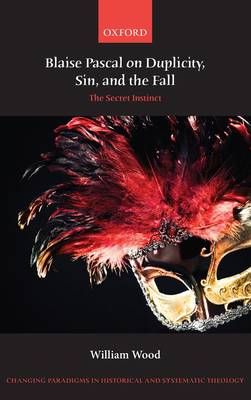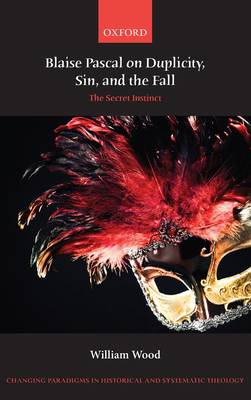
- Afhalen na 1 uur in een winkel met voorraad
- Gratis thuislevering in België vanaf € 30
- Ruim aanbod met 7 miljoen producten
- Afhalen na 1 uur in een winkel met voorraad
- Gratis thuislevering in België vanaf € 30
- Ruim aanbod met 7 miljoen producten
Zoeken
Omschrijving
Blaise Pascal's account of the cognitive consequences of the Fall is clearly set out by William Wood in the first book on Pascal's theology to appear in English in more than forty years. Wood's central claim is that for Pascal, the Fall is a fall into duplicity. Pascal holds that as fallen selves in a fallen world, human beings have an innate aversion to the truth that is also, at the same time, an aversion to God. According to Pascal, we are born into a duplicitous world that shapes us into duplicitous subjects, and so we find it easy to reject God continually and deceive ourselves about our own sinfulness. Pascal's account of the noetic effects of sin has long been overlooked by theologians, but it is both traditional and innovative. It is robustly Augustinian, with a strong emphasis on the fallen will, the darkened intellect, and the fundamental sin of pride. Yet it also embraces a view of subjectivity that seems strikingly contemporary. For Pascal, the self is a fiction, constructed from without by an already duplicitous world. The human subject is habituated to deception because it is the essential glue that holds his world together. This book offers more than just a novel interpretation of Pascal's Pensees. Wood demonstrates, by exegetical argument and constructive example, that 'Pascalian' theology is both possible and fruitful.
Specificaties
Betrokkenen
- Auteur(s):
- Uitgeverij:
Inhoud
- Aantal bladzijden:
- 252
- Taal:
- Engels
- Reeks:
Eigenschappen
- Productcode (EAN):
- 9780199656363
- Verschijningsdatum:
- 24/08/2013
- Uitvoering:
- Hardcover
- Formaat:
- Genaaid
- Afmetingen:
- 145 mm x 216 mm
- Gewicht:
- 430 g

Alleen bij Standaard Boekhandel
+ 580 punten op je klantenkaart van Standaard Boekhandel
Beoordelingen
We publiceren alleen reviews die voldoen aan de voorwaarden voor reviews. Bekijk onze voorwaarden voor reviews.








